Save Water, Save Life: The Importance of Water Conservation in 500 Words, Discover the critical importance of water conservation and how simple actions can protect this precious resource. Learn practical tips to save water, support ecosystems, and ensure a sustainable future for all.
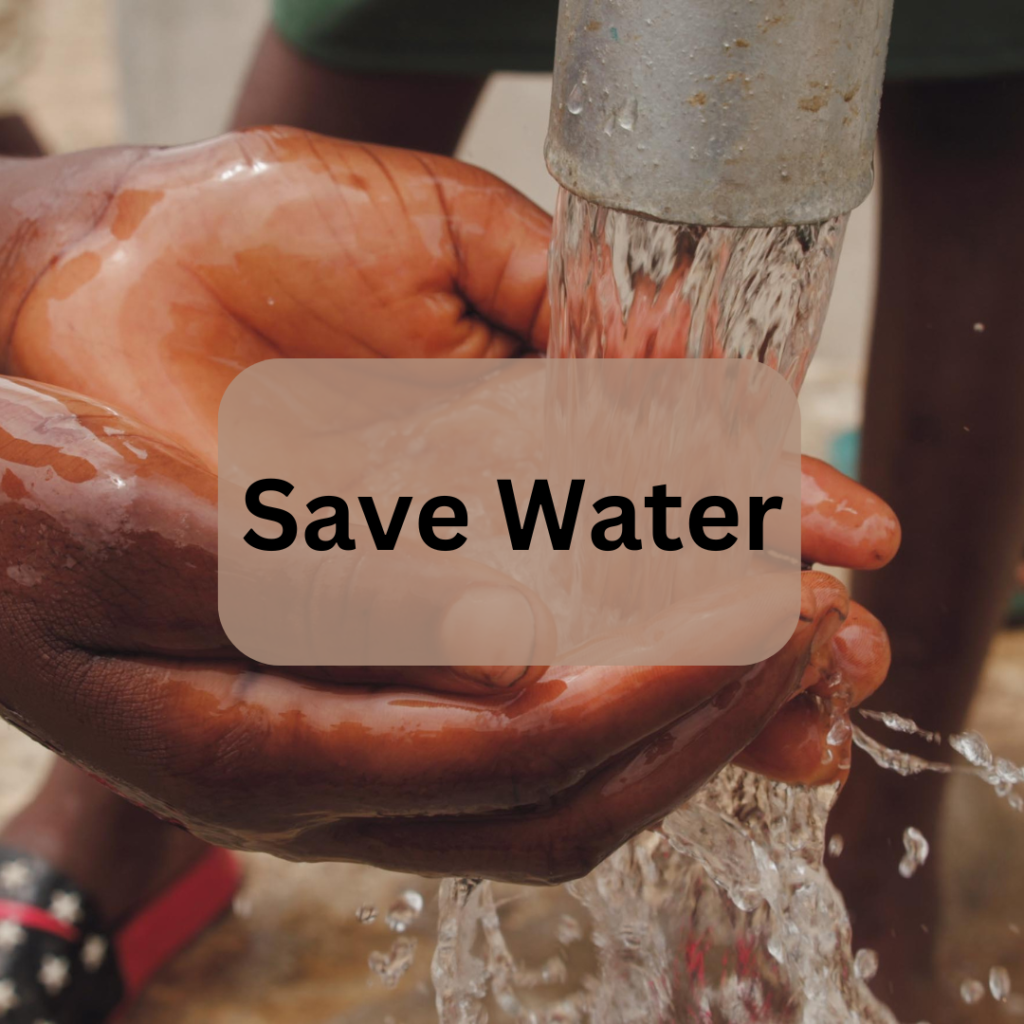
“Save Water, Save Life”
Water is the elixir of life. It sustains all forms of life on Earth, from the smallest microorganisms to the largest ecosystems. Despite its abundance, only 3% of the planet’s water is fresh, and less than 1% is accessible for human use. With the growing demands of an increasing population, rapid industrialization, and climate change, water scarcity has become a pressing global issue. The mantra “Save Water, Save Life” encapsulates the critical need to conserve this precious resource.
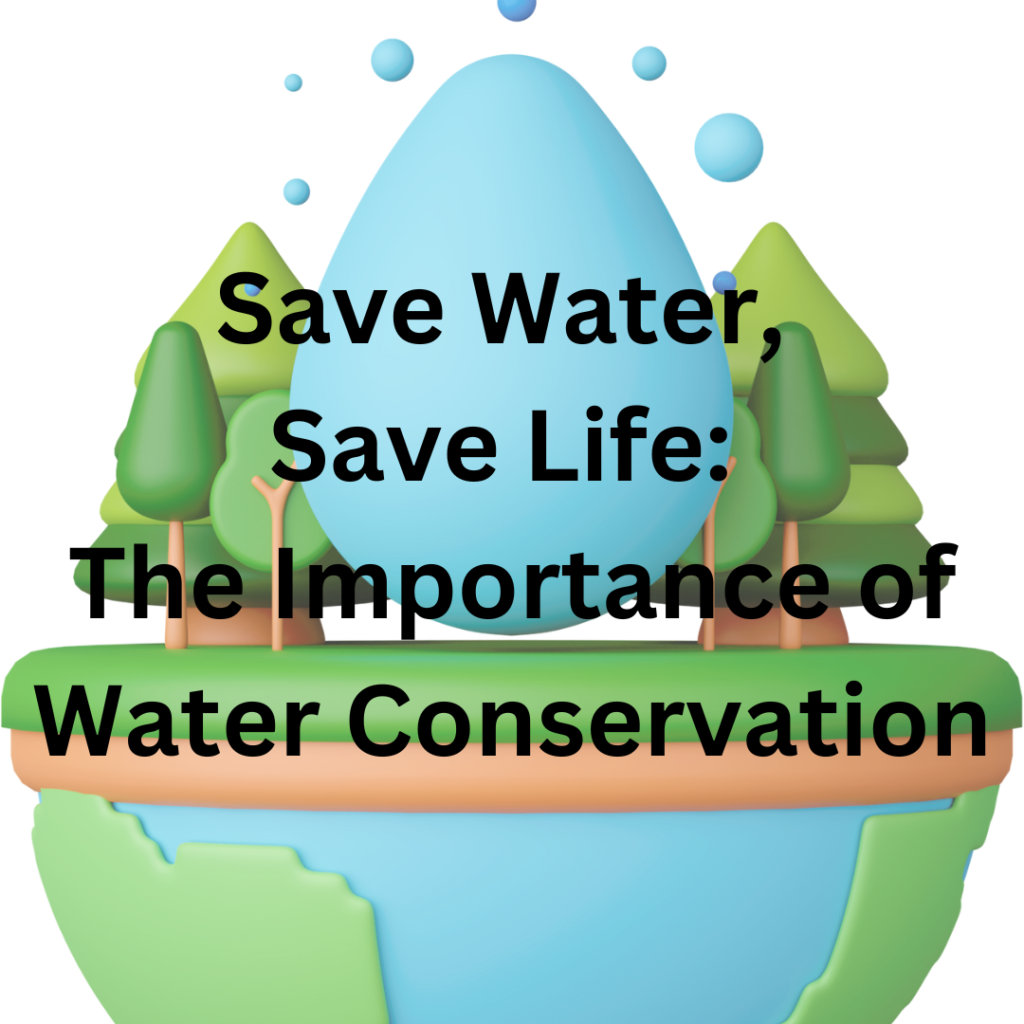
Why Water Conservation Matters
Water is indispensable for survival. It is essential for drinking, cooking, agriculture, sanitation, and numerous industrial processes. Beyond its direct uses, water plays a vital role in maintaining the Earth’s ecosystems, regulating climate, and supporting biodiversity.
However, unsustainable consumption, pollution, and wastage are depleting this vital resource. According to the United Nations, nearly 2.2 billion people lack access to safely managed drinking water services. By 2025, half of the world’s population could be living in water-stressed areas. This looming crisis makes water conservation not just an environmental concern but also a matter of global survival and equity.
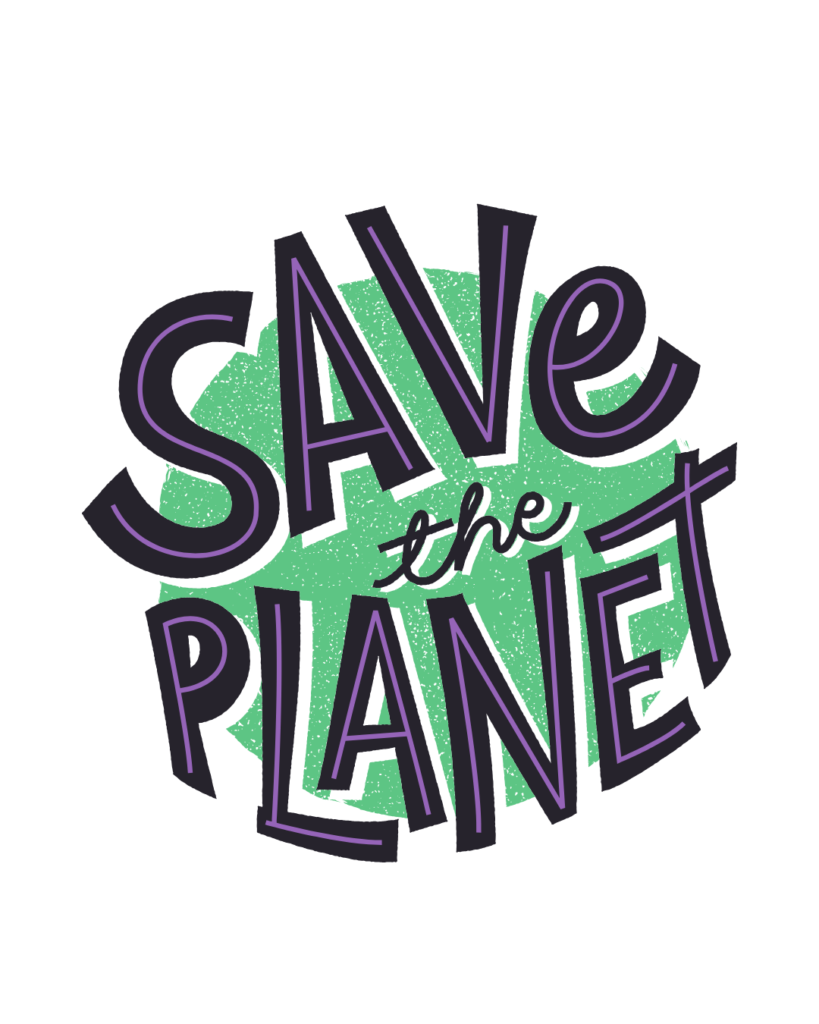
Simple Ways to Conserve Water
- Fix Leaks: A dripping tap can waste up to 20 gallons of water a day. Regular maintenance of plumbing systems can significantly reduce water wastage.
- Use Water Wisely: Simple habits like turning off the tap while brushing teeth or using a bucket instead of a hose for washing cars can save gallons of water daily.
- Rainwater Harvesting: Collecting and storing rainwater for future use can supplement water supply and reduce dependency on groundwater.
- Adopt Water-Efficient Technologies: Use low-flow faucets, water-saving showerheads, and efficient irrigation systems to minimize water usage.
- Recycle and Reuse Water: Greywater from sinks and washing machines can be treated and reused for gardening and cleaning.
The Role of Communities and Governments
Individual efforts alone are not sufficient to address the global water crisis. Governments and communities must play an active role in water conservation. Policies that regulate water usage, prevent pollution, and promote sustainable practices are essential. Community-driven initiatives such as watershed management, afforestation, and awareness campaigns can make a significant impact.
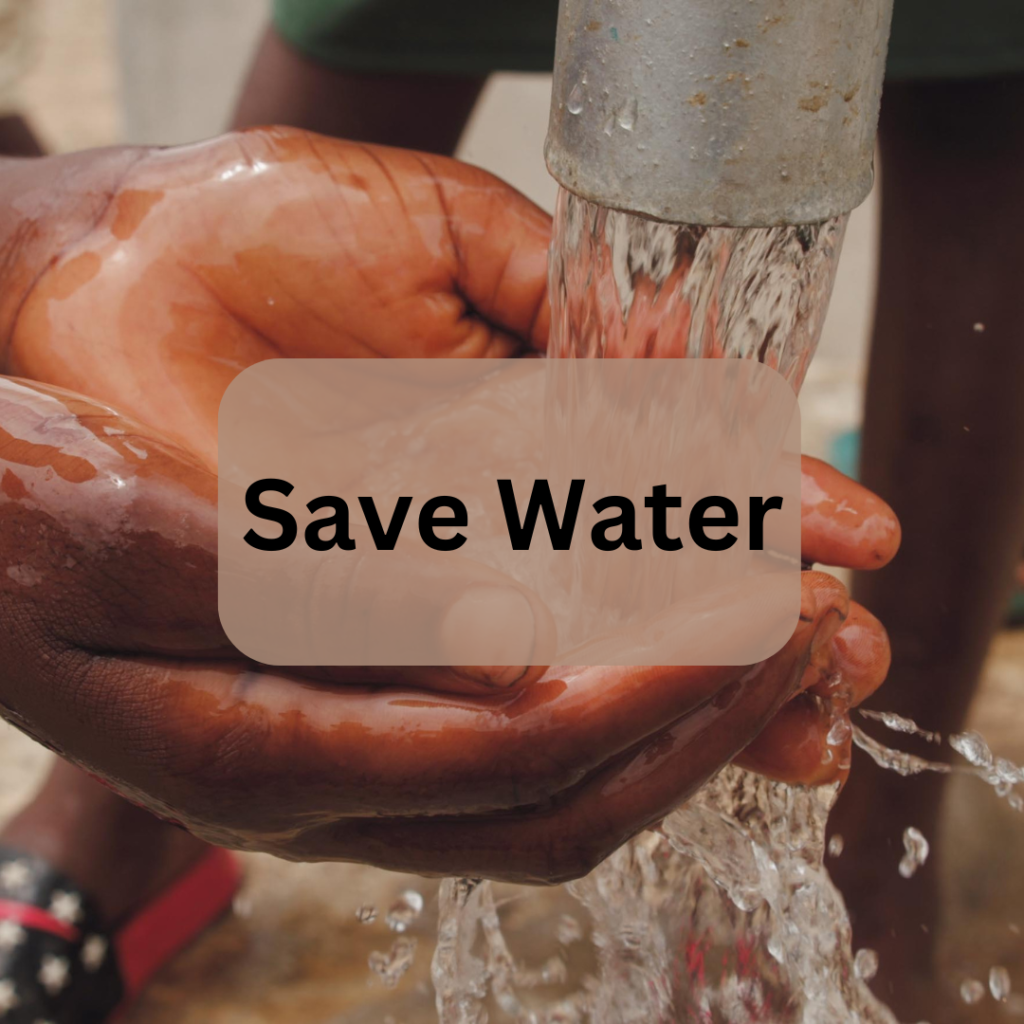
The Environmental Impact of Water Conservation
Saving water contributes to the health of ecosystems. Reduced water consumption decreases the strain on rivers, lakes, and aquifers, ensuring they can sustain wildlife and maintain their natural functions. Conservation also minimizes energy use, as less water needs to be treated, transported, and heated, reducing carbon emissions.
A Call to Action
Water conservation is not a choice but a necessity. Every drop counts, and every individual’s effort matters. By adopting water-saving habits, supporting conservation policies, and educating others about the importance of water, we can secure this resource for future generations.
In conclusion, saving water is synonymous with saving life. It is a shared responsibility that demands urgent action. Let us pledge to value and protect this precious resource, for our survival and the well-being of the planet depend on it.
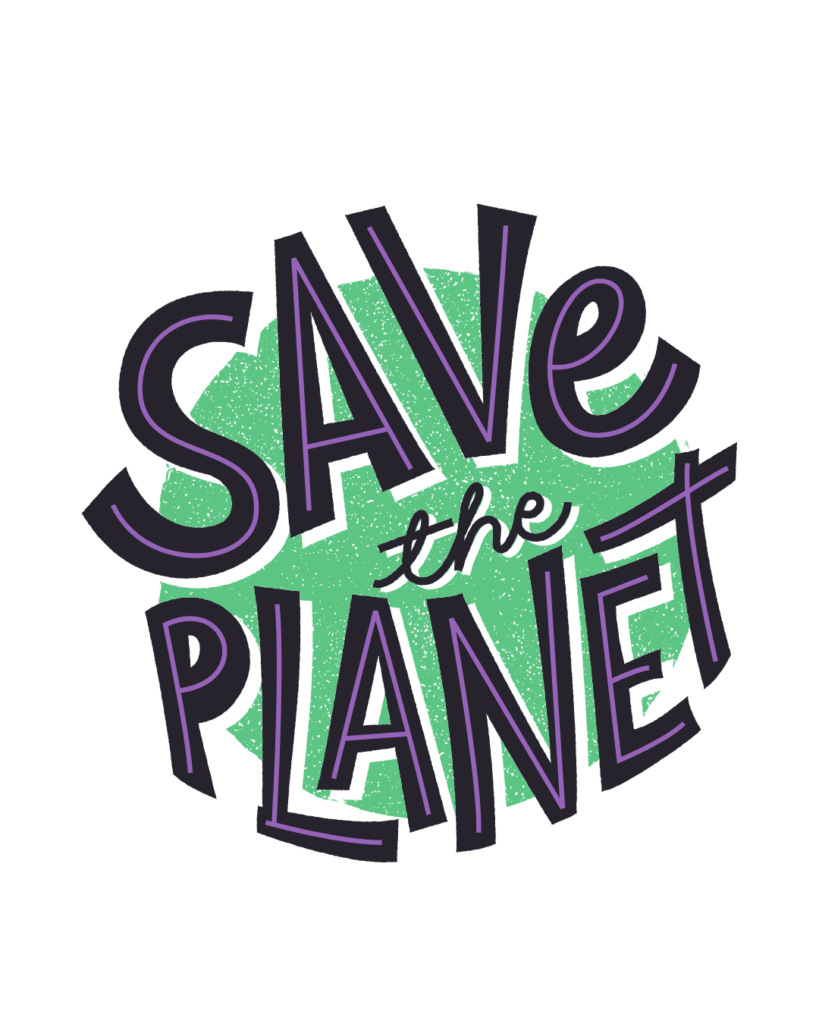
Why is water conservation important for life?
Water conservation is crucial for ensuring the availability of clean water for future generations. As the global population grows and water sources deplete, conserving water helps sustain ecosystems, support agriculture, and improve quality of life. Protecting water today ensures a sustainable future for all.
How can we save water in our daily lives?
Simple actions can help save water every day. You can:
Turn off the tap while brushing your teeth.
Use water-efficient appliances.
Fix leaks in pipes, faucets, or toilets.
Collect rainwater for gardening. By incorporating these habits, you contribute to long-term water conservation.
What are the environmental benefits of saving water?
Saving water helps protect local wildlife and natural habitats. By reducing water waste, we help prevent water scarcity, decrease energy consumption (as water treatment requires energy), and preserve wetlands and rivers that are vital to biodiversity.
How does water conservation impact agriculture?
Water is essential for agriculture. Conserving water ensures that farmers can access the resources needed for irrigation, maintaining crop production, and food security. Efficient water use in farming promotes sustainability and reduces the strain on local water supplies.
What is the role of government in water conservation?
Governments play a key role in water conservation by implementing policies and regulations to protect water resources. This includes managing water distribution, investing in infrastructure for water storage, and encouraging sustainable practices among industries and consumers.
Can technology help with water conservation?
Yes, technology offers innovative solutions such as smart water meters, water-efficient irrigation systems, and wastewater recycling technologies. These tools help optimize water use and reduce waste, ensuring better resource management.
How can we raise awareness about water conservation?
Raising awareness about the importance of water conservation can be done through:
Educational programs in schools and communities.
Social media campaigns.
Public service announcements. The more people understand water’s vital role, the more they will take action to conserve it.
What are the long-term consequences of not conserving water?
If water conservation efforts aren’t prioritized, we may face severe water shortages, environmental degradation, and increased costs for clean water. It can lead to the depletion of vital resources, disrupt agriculture, and cause ecological imbalances.
How does saving water help reduce climate change?
Water conservation helps reduce energy consumption because pumping, treating, and heating water requires significant energy. By conserving water, we indirectly lower carbon emissions and contribute to combating climate change.
What are some easy steps to conserve water in the household?
Some easy household tips to conserve water include:
Install low-flow showerheads and toilets.
Use a broom instead of a hose to clean driveways.
Full laundry loads to minimize water usage. These simple practices can significantly reduce your water footprint.
For more articles you can visit our website https://www.stationvidya.com
You can follow us on Instagram: https://www.instagram.com/stationvidya/
Facebook: https://www.facebook.com/stationvidya/
You tube: https://www.youtube.com/@stationvidya/
We hope you’d loved the content , please do like, share and comment.
Subscribe for notification.
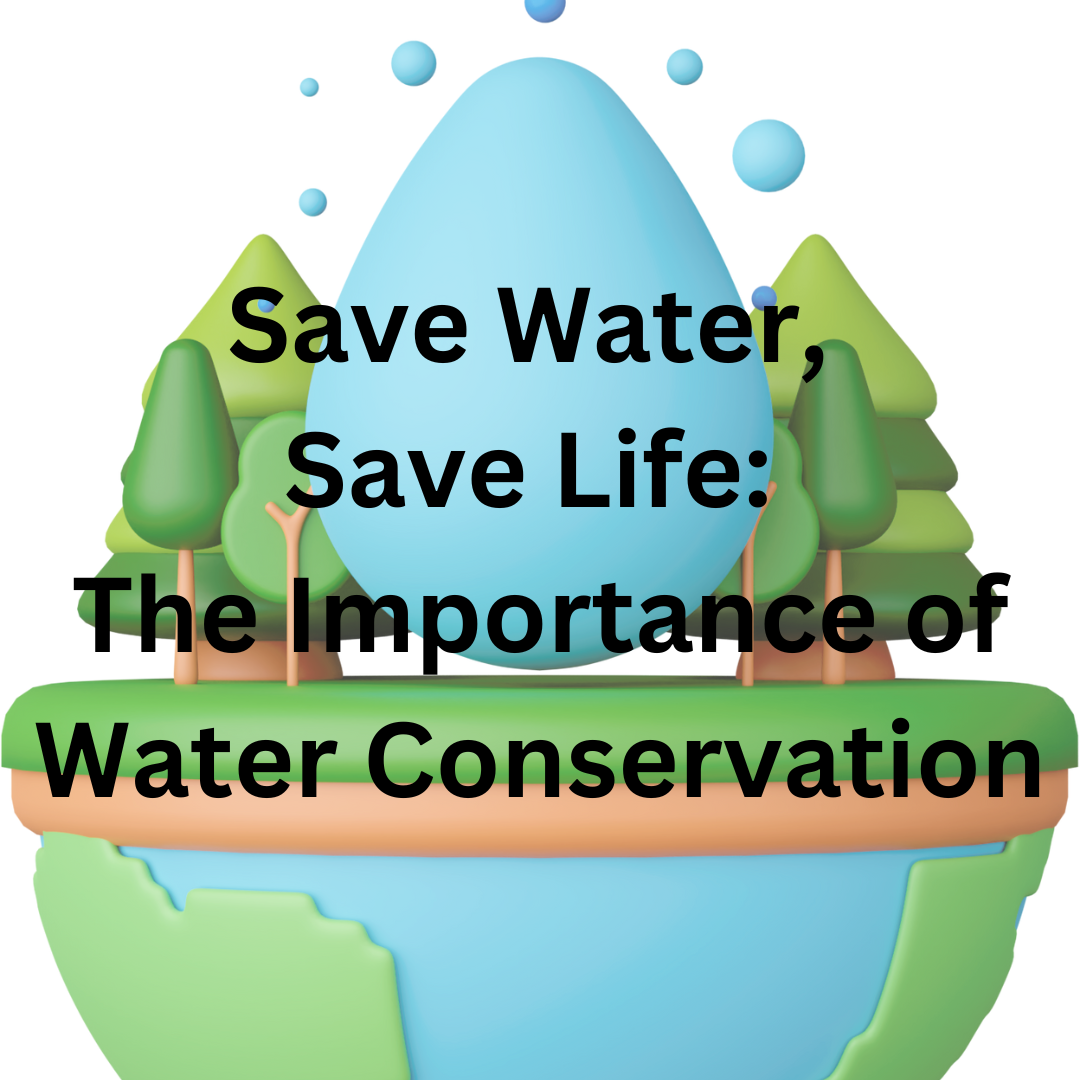
Leave a Reply